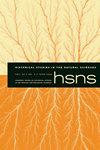如何成为一个认知入侵者
IF 0.3
3区 哲学
Q2 HISTORY & PHILOSOPHY OF SCIENCE
引用次数: 1
摘要
在过去的两年里,有很多关于专业知识的讨论:谁拥有,谁没有,谁声称拥有但不应该拥有。全球大流行带来了巨大的不确定性,损害了我们的健康、学习、生计和幸福,在这种情况下,确保政策制定者根据正确的专业知识做出决定似乎至关重要。而且,从流行病的角度来看,专家的定义似乎是不言而喻的:长期担任美国国家过敏和传染病研究所所长的免疫学家安东尼·福奇(Anthony Fauci)符合这个要求。自称天才的美国前总统唐纳德·特朗普却没有。然而,在媒体和学术界,我们经常看到对哲学家内森·巴兰坦(Nathan Ballantyne)所说的“知识侵入”的指责:没有相关知识或证书的人在公共论坛上对他们一无所知的事情发表意见评论人士警告说,听信这些假专家的话,尤其是在涉及关键政策或公共卫生问题时,可能会产生灾难性的后果。我观察到这些试图识别和监管认知闯入者的尝试,感到有些不安。作为一名科学技术研究学者,我知道政治和知识是密不可分的,与政策相关的知识和专业知识并不总是清晰的。国家的政治文化和历史不仅塑造了我们如何定义公共问题,也塑造了我们如何对公共问题进行推理在特定政策领域的层面上,本文章由计算机程序翻译,如有差异,请以英文原文为准。
How to Be an Epistemic Trespasser
Over the last two years, there has been a lot of talk about expertise: who has it, who doesn’t, who is claiming it but shouldn’t. Amid a global pandemic that has brought tremendous uncertainty and damaged our health, learning, livelihoods, and happiness, ensuring that policymakers base their decisions on the correct expertise seems crucial. And, pandemically speaking, the definition of expert appears to be self-evident: Anthony Fauci, an immunologist who has long served as the director of the U.S. National Institute of Allergy and Infectious Diseases, fits the bill. Former U.S. president Donald Trump, selfproclaimed genius, does not. Yet, we’ve seen frequent accusations, across the media and academic landscapes, of what philosopher Nathan Ballantyne calls “epistemic trespassing”: people without relevant knowledge or credentials opining in public forums on matters they know nothing about.1 Commentators warn that listening to these false experts, particularly when it comes to crucial policy or public health matters, could have catastrophic consequences. I’ve observed these attempts to identify and police epistemic trespassers with some discomfort. As a science and technology studies (STS) scholar, I know that politics and knowledge are inextricably intertwined, and that policyrelevant knowledge and expertise are not always clear. National political cultures and histories shape not only how we define but also how we reason through public problems.2 At the level of particular policy domains,
求助全文
通过发布文献求助,成功后即可免费获取论文全文。
去求助
来源期刊

Historical Studies in the Natural Sciences
社会科学-科学史与科学哲学
CiteScore
1.00
自引率
0.00%
发文量
24
审稿时长
>12 weeks
期刊介绍:
Explore the fascinating world of Historical Studies in the Natural Sciences, a journal that reveals the history of science as it has developed since the 18th century. HSNS offers in-depth articles on a wide range of scientific fields, their social and cultural histories and supporting institutions, including astronomy, geology, physics, genetics, natural history, chemistry, meteorology, and molecular biology. Widely regarded as a leading journal in the historiography of science and technology, HSNS increased its publication to five times per year in 2012 to expand its roster of pioneering articles and notable reviews by the most influential writers in the field.
 求助内容:
求助内容: 应助结果提醒方式:
应助结果提醒方式:


